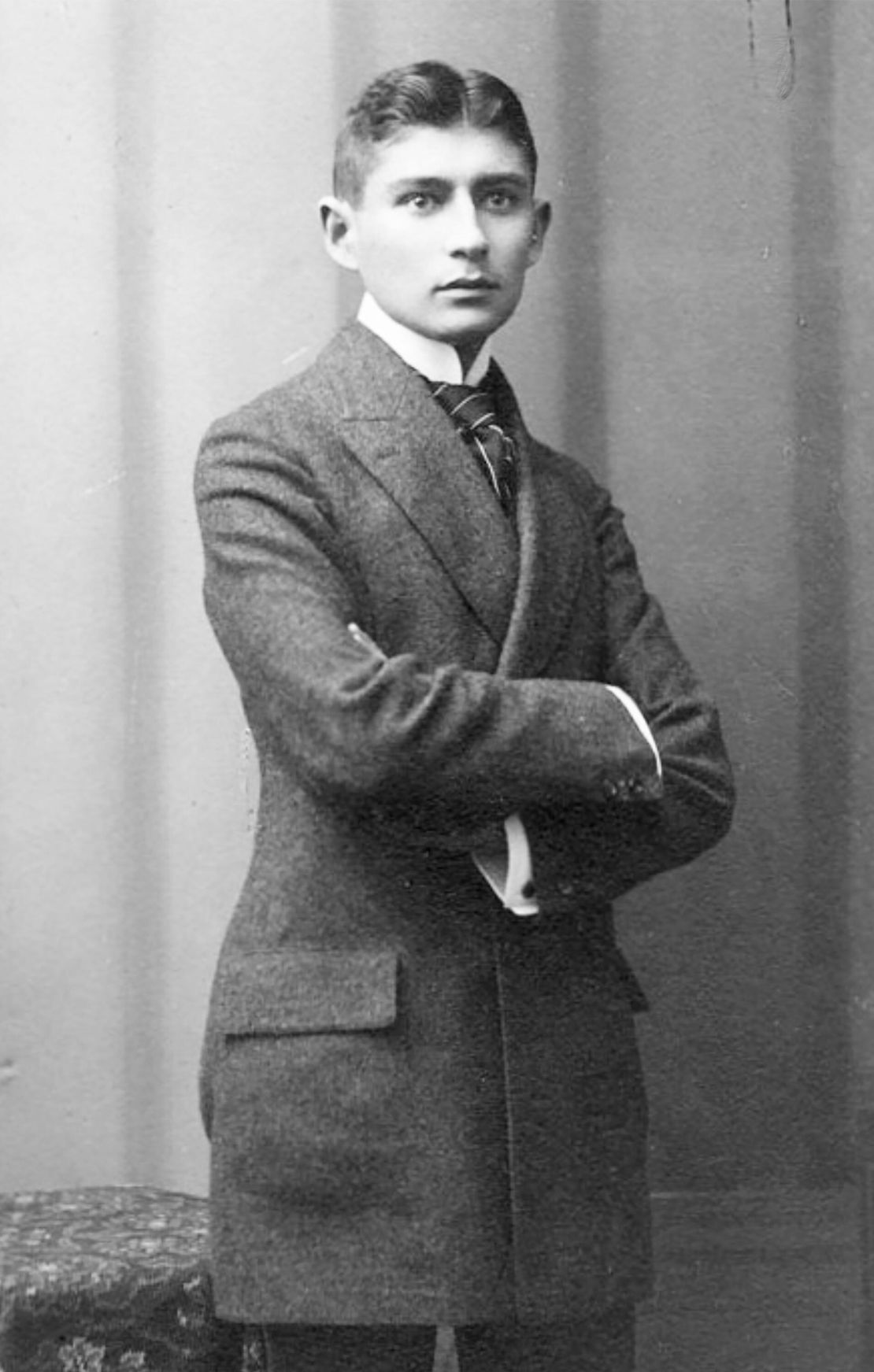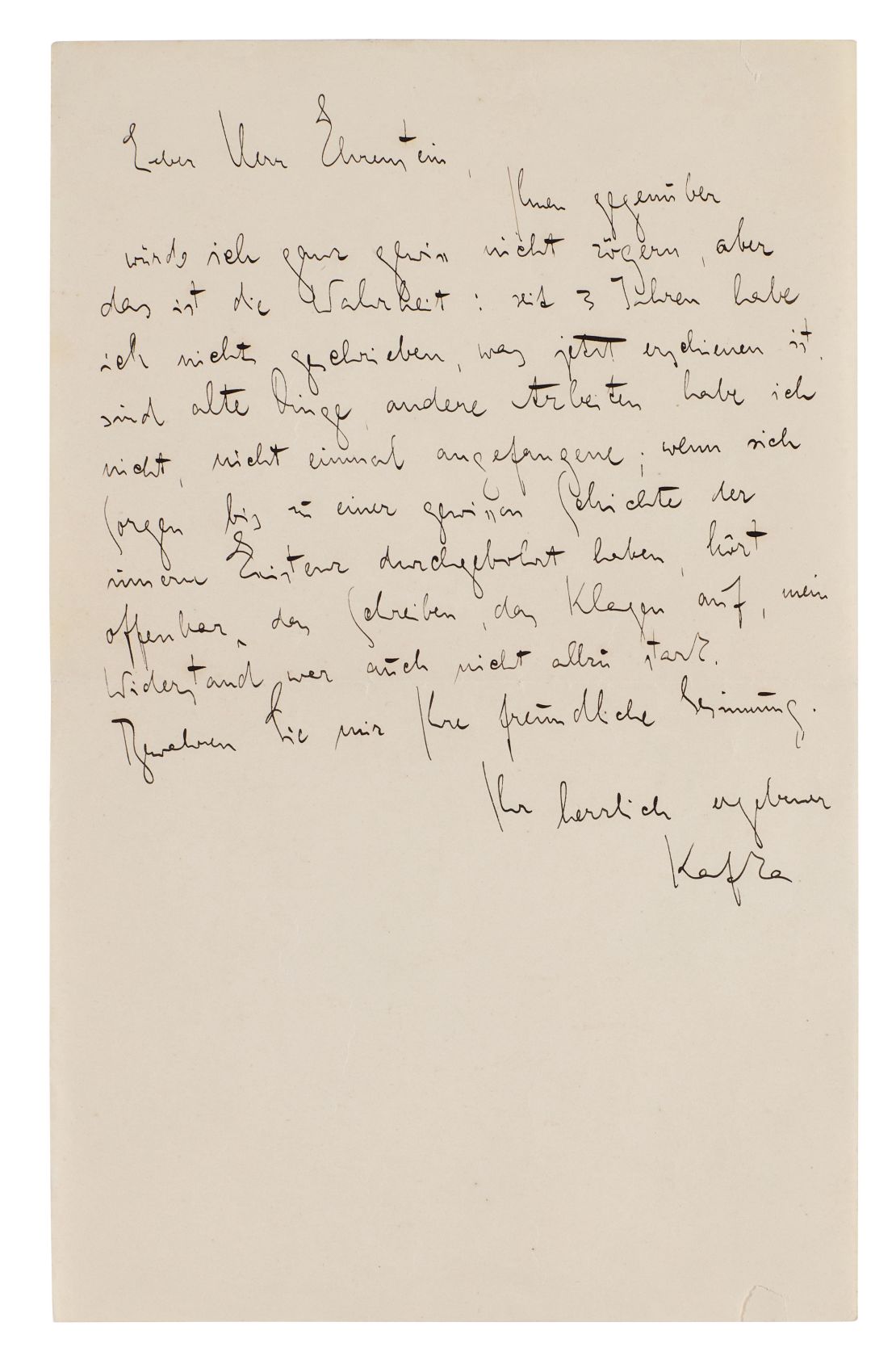A letter giving a rare insight into Franz Kafka’s struggle with writer’s block is going up for auction.
Best-known for the 1915 novella “The Metamorphosis,” the Prague-born Jewish writer struggled throughout his short life with anxiety, hopelessness and isolation – themes that came to define his work – but little has been known about his creative process.

The one-page letter, which is expected to sell for £70,000 to £90,000 ($89,000 to $115,000) at Sotheby’s in London, is dated to spring 1920, according to the auction house.
This means it would have been written while Kafka was undergoing treatment for tuberculosis, with which he was diagnosed three years earlier. He took intermittent sick leave from his job with an insurance company and would often spend periods at sanatoriums. He retired in 1922 and died in a clinic near Vienna two years later.

“I haven’t written anything for three years, what’s published now are old things, I don’t have any other work, not even started,” Kafka lamented in the letter, written in German and addressed to his friend, the Austrian poet Albert Ehrenstein.
Giving a reason for this literary dry spell, Kafka wrote: “When worries have penetrated to a certain layer of inner existence, writing and complaining obviously cease, indeed my resistance was not too strong.”
The letter was written in response to Ehrenstein asking him to contribute to his magazine, Sotheby’s said in a media statement issued Monday. Ehrenstein made the request after seeing a newly published work by Kafka – probably the 1919 short story collection “Ein Landarzt” (“A Country Doctor”).
“The life and works of Franz Kafka have long been a source of fascination throughout the world,” Sotheby’s Books & Manuscripts specialist Gabriel Heaton said in the release.
“The letter reveals how writing made intense demands on him, and required deep reserves of inner strength, as he grappled with deep insecurity and worry about the futility of his work. We can also all be thankful that Kafka would continue to pick up his pen despite his crippling writer’s block,” he added.
At the time the letter was written, Kafka had also begun an intense love affair with Czech journalist and writer Milena Jesenská. So, despite his physical health continuing to decline, Kafka was given renewed confidence with Jesenská’s support and was able to begin his final literary endeavors, including “A Hunger Artist” and “The Castle,” according to the release.
Both these books were published posthumously, in 1924 and 1926, respectively – despite Kafka requesting that his unpublished manuscripts be destroyed upon his death.
Though he was sought out by avant-garde publishers during his life, Kafka’s greatest literary acclaim came posthumously.


You must be logged in to post a comment.